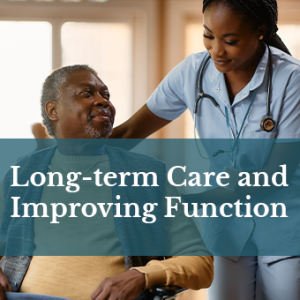
Is a re-enablement and rehabilitation focus in Long Term Care Possible?
Presenter(s):
Kristi Holloway, Hall & Prior Health and Aged Care Group, Australia
Abstract
As the population ages and the demand for long term care increases there is a growing interest in shifting the traditional model of Long Term Care that has focused on maintenance towards a model that is emphasises importance of re-enablement and rehabilitation.
At the same time hospitals in Perth, Western Australia are faced with significant overcrowding and ambulance ramping problems, with elderly patients disproportionately represented in long stay populations.
Leveraging the relationships formed with the acute sector during the last few years, Hall & Prior, a specialist long term care provider with over 2,400 residents in care across 39 residential aged care services, diversified services to offer specialist rehabilitation and reablement pathways. Four specialist pathways are now offered;
1. Transition Care. An allied health led, re-enablement focused post hospital 12-week program where elderly residents with rehabilitation potential are admitted across residential and community care settings, with the goal of optimising health and supporting people to return home where possible.
2. Time to Think. A post hospital program where elderly residents are admitted to maintain function, whilst finding appropriate long term care, avoiding long hospital stays.
3. From Hospital to Home. A program targeted at younger (35 – 60yo) patients in hospital, provided with specialist disability support care to find sustainable long permanent accommodation, reducing long stays in the acute hospital setting.
4. Specialist Dementia Care Program. 2 x specialist 9 bed units that identify and stabilise patients who are severely affected by the behavioural symptoms of dementia. This program offers residential care for up to 12 months looking to stabilise residents before transitioning to appropriate long term care.
This presentation will demonstrate the benefit to the resident, the acute health system, staff and the long term care provider in diversifying care programs to offer specialist programs with an enablement and rehabilitation focus.
Key data will be shared and will highlight the organisational characteristics that facilitate a long term care provider being able to diversify care programs that offer rehabilitative approaches.
Bio(s):
Kristi Holloway is an experienced leader, teacher and clinician in aged care.
Following completing her undergraduate training as a Registered Nurse, Kristi worked clinically across the acute and aged care sectors before pivoting to the education sector.
The passion for care delivery in rural and remote communities drew her back to aged care, and the Hall & Prior Health and Aged Care Group where she has been for the last 9 years.
Kristi currently oversees 7 long term care facilities, a specialist community palliative care service and 2 home care services that span both rural and metropolitan locations.
Kristi has specific interests in building leadership capacity, palliative care and dementia.
